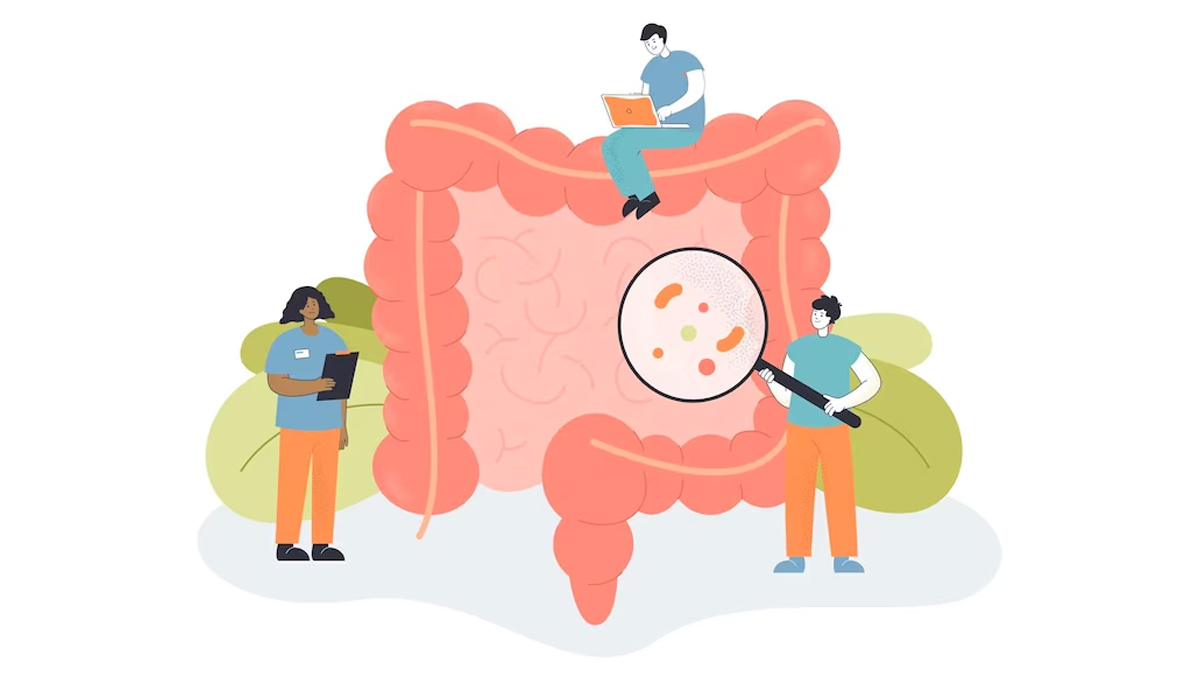
With its complex nature and unpredictable course, Crohn's disease presents unique challenges to those living with the condition. Crohn's disease is characterised by inflammation that can occur anywhere along the gastrointestinal tract, most commonly affecting the small intestine and/or colon.
Complexity of Crohn's Disease
Dr Adi Rakesh Kumar, Consultant Gastroenterologist, Therapeutic Endoscopist and Endocrinologist, Yashoda Hospitals, Hyderabad, explained, " Crohn’s disease can affect any part of the digestive tract, from the mouth to the anus." It entails inflammation that can penetrate the full thickness of the intestinal wall and can occur in diverse segments of the digestive tract, with healthy regions of the gut in between the inflamed areas, according to him.
Also read: World Inflammatory Bowel Disease Day: Differences Between Ulcerative Colitis And Crohn's Disease
While the exact cause remains unknown, a combination of genetic, environmental, and immune factors is believed to contribute to its development. Factors such as a dysregulated immune response, intestinal bacteria, and a family history of the disease may play a role in its onset.

Recognising Symptoms and Diagnosis
As per MayoClinic, Crohn's disease manifests differently in each individual, but common symptoms include:
- Abdominal pain
- Diarrhoea
- Rectal bleeding
- Weight loss
- Fatigue, and reduced appetite.
Due to the similarity of symptoms to other gastrointestinal conditions, a thorough diagnostic process is essential. This typically involves medical history assessment, physical examinations, blood tests, stool analysis, endoscopic procedures like colonoscopy, flexible sigmoidoscopy, imaging studies like CT scan, MRI, and sometimes tissue biopsy to confirm the diagnosis and determine the extent of inflammation.

Treatment Approaches
Managing Crohn's disease aims to reduce inflammation, alleviate symptoms, and improve quality of life. Treatment plans are individualised based on the severity and location of the disease, as well as the patient's overall health. The mainstay of treatment includes medication therapy, which may involve a combination of anti-inflammatory drugs, immunosuppressants, biologics, and antibiotics.
In severe cases or when complications arise, surgery may be necessary to remove damaged portions of the intestine or manage complications such as abscesses or strictures.
Also read: Expert Explains Causes And Treatment Of Mouth Ulcers In Children
Lifestyle Considerations
In addition to medical intervention, certain lifestyle modifications can help individuals with Crohn's disease manage their symptoms and improve their well-being. These include adopting a well-balanced diet that avoids trigger foods, maintaining adequate hydration, managing stress levels, getting regular exercise, and ensuring sufficient rest and sleep.
Also, joining support groups and seeking emotional support can be beneficial in coping with the challenges posed by this chronic condition.
Emerging Therapies and Future Perspectives
Ongoing research in the field of Crohn's disease is focused on identifying novel therapeutic targets and personalised treatment approaches. Advancements in biologic therapies, such as targeted monoclonal antibodies, have shown promising results in achieving and maintaining remission. Additionally, research into the gut microbiome and its influence on Crohn's disease is uncovering potential avenues for future treatments and interventions.
Coping with the Challenges
Living with Crohn's disease can be physically and emotionally demanding. It is crucial for individuals to build a strong support network, maintain open communication with doctors, and stay informed about the resources available.
Crohn's disease is a complex chronic condition that requires ongoing management and support. By understanding the causes, symptoms, diagnosis, treatment options, and lifestyle considerations associated with Crohn's disease, individuals and their caregivers can navigate the challenges more effectively.
With advancements in research and a comprehensive approach to treatment, individuals with Crohn's disease can strive for improved symptom control, enhanced quality of life, and a brighter future ahead.
How we keep this article up to date:
We work with experts and keep a close eye on the latest in health and wellness. Whenever there is a new research or helpful information, we update our articles with accurate and useful advice.
Current Version